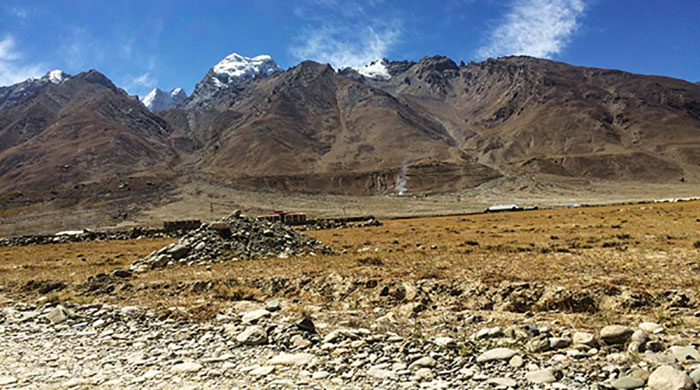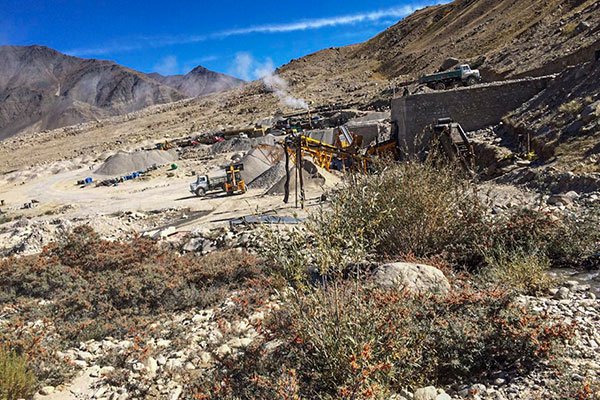Zangskar is a remote valley nestled in southern Ladakh. It covers an area of 7,000 sq. km with an average elevation of 7,135m above mean sea level. The valley of Zangskar is drained by two tributaries of the Zangskar river: the Stod (Doda) river and the Lungnak river (Kargyag and Tsarap rivers). Zangskar is a fertile valley that depends on snow-melt that drains through the river systems. Hence, the quality of river water determines the quality of food and general lifestyle in valleys such as Zangskar.
Globalisation and modern development have not spared Zangskar, which has experienced various forms of technological and infrastructural advancements. When such developments are introduced without planning and consultation, it often leads to long-term environmental and negative health impacts.
One such instance of myopic development is that of a stone-crusher that has been developed at a village called Ubrak. The quarrying and mining activities associated with the stone crusher have had long-term impacts on the ecology, economy and the health of local communities. Unfortunately, the stone crushing industry in Zangskar has been growing rapidly due to increasing demand from the construction industry. Stone crushing operations are known to release particulate emissions that lead to environmental degradation along with serious health impacts for humans and wild animals that live in the area.
The conversion of naturally-occurring rocks into crushed and broken stone products involves a series of distinct physical operations. This includes quarrying through drilling, blasting, loading, hauling and process through plant operations such as crushing, screening, conveying and transfer. They are significant sources of particulate emissions. Stone crushing and allied activities generally have a considerable impact on the air, water, land and biological resources as well as socio economic setting of local population. Mining activities always have negative impact on environmental quality.
Since Zangskar is still in the developing stage, various destructive elements will probably be inevitable in the coming days. There is an urgent need to implement strict environmental laws before it is too late. Zangskar has a very fragile ecology, which is already showing signs of degradation due to pollution as a result of increased tourism and growing number of motor vehicles. All this has added to the environmental stress already exerted by stone crushers. There is need to regulate anthropogenic activities especially in terms of tourist inflow and infrastructure development. This includes implementation of current environmental norms such as levying of environmental fee or tax on all stone crusher establishments in Zangskar.

The stone crusher of Ubrak is located very close to the glacier. Glaciers such as these are the primary source of water for various purposes including irrigation for around nine villages downstream. The dust produced from the stone crusher unit is injurious to human health while also polluting air, water, and soil. It also disturbs wildlife and degrades vegetation and medicinal plants.
The stone crusher and such activities have caused glaciers to melt. At the same time it has also had a detrimental impact on wildlife such as marmot, brown bear, fox and medicinal plants, which have completely disappeared from the immediate area around the site of the stone crusher. In addition, the toxic dust from the stone crusher pollutes water bodies, which in turn has detrimental impact on crops and agriculture when it is used for irrigation.
I fail to understand why the local village communities have not uttered a word against such activities especially the stone crushers. Or have their voices been silenced by power or greed? Are we willing to sacrifice our glaciers, which remain our only source of water, and our wildlife on the altar of development? As a resident of Zangskar, I remain deeply disturbed by such development activities, the lack of regulation and our collective callousness.
Photographs and text by Tashi Tsewang (Rukruk)
Tashi Tsewang (Rukruk) works in the tourism sector and is also involved with agricultural activities in his village.

